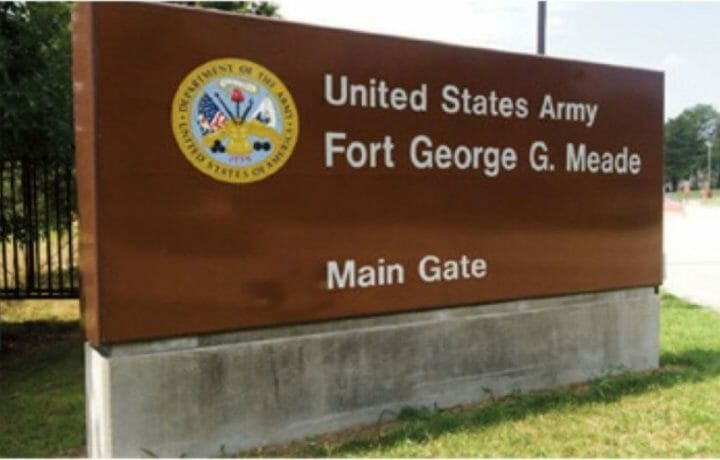Earlier this year, the head of United States Cyber Command made clear that even in peacetime, the command, along with the National Security Agency (NSA) must maintain a “wartime footing” to defend the homeland from a cyber attack. That point was made by U.S. Army General Paul Nakasone to lawmakers on the Senate Armed Services Committee in March.
“In the contested cyberspace domain U.S. Cyber Command acts against foreign adversaries that threaten our nation through malicious cyber activity and enables action by our federal, private and allied partners,” the general said. “For instance, a combined U.S. Cyber Command-NSA election security group countered malicious cyber actors and oversaw measures to enable the Department of Homeland Security and the FBI, among other domestic partners, to defend the recent midterm elections.”
To help ensure that America’s cyber warfighters can fulfill the mission, many will soon have a new home – literally.
Earlier this month, General Nakasone, who also serves as the director of the NSA, was the special guest speaker at the groundbreaking ceremony at Fort Meade, MD, for the construction of two new buildings, the Freedom Center IV barracks.
The facilities will house 380 enlisted service members from all military branches when complete.
“It’s going to be members of the Central Security Service, 40% of NSA’s workforce, the Marines, the Soldiers, the Sailors, the Airmen, the Guardians, the Coast Guardsmen that make up the analysts and linguists and reporters that ensure that the National Security Agency can do its principal missions of signals intelligence and cyber security,” Nakasone explained. “This is a world-class facility for a world-class workforce.”
Officials of the Freedom Center IV project have set a target completion date in the Fall of 2025.
First Phase Taking Shape
The Freedom Center IV project is the first phase of a long-term plan for barracks at Fort Meade, one that will provide the necessary housing for the tenants.
“A solution that’s vital for this installation’s growing mission, as it provides tenants with the proper, necessary housing that they deserve,” said Lt. Colonel David Myers, Deputy District Commander, U.S. Army Corps of Engineers
The project, which has been planned for more than a decade, will offer far more comfortable accommodations for service members, which will include kitchenettes. Once completed, the old barracks will be demolished.
A Unified Combatant Command
The groundbreaking ceremony also highlighted the cooperation that exists between the military and NSA.
“The combined effort between the NSA and the U.S. Army Garrison (Fort George G. Meade) to fund this facility could only happen because of the partnership and cooperation. When we combine our efforts, we can do so many great things,” added Colonel Michael Sapp, Commander, U.S. Army Garrison Fort George G. Meade also emphasized the importance of partnership.
“These buildings and the joint service members that will reside in them are another reminder of the incredible talent and skills that we need to attract and retain service members with skills that the nation needs so dearly,” Sapp added. “It should not be underestimated and cannot be overstated the quality housing and the impact it will have on morale and the quality of work.”
The United States Cyber Command (USCYBERCOM) is one of eleven nation’s unified combatant commands, and it unifies the direction of cyberspace operations. It was established as a Sub-Unified command under the U.S. Strategic Command in June 2009 at NSA headquarters at Fort George G. Meade, located midway between Baltimore, MD, the District of Columbia, and Annapolis. It cooperates with NSA networks and has been concurrently headed by the director of the NSA since its inception. In August 2017, USCYBERCOM was elevated to the status of a full and independent unified combatant command. Though created with a defensive mission in mind, it has increasingly been viewed as an offensive force.


